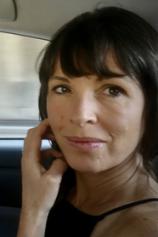Kudos
Review
Kudos
In a 2016 review of Rachel Cusk’s novel, TRANSIT, the second entry in the trilogy that began in 2014 with OUTLINE, I warned prospective readers that it was “mostly devoid of dramatic incident.” That’s even more the case in the final member of the threesome, KUDOS. If that doesn’t deter you, then prepare for another terse, smart, sometimes witty glimpse of contemporary life, filtered through the perception of its highly intelligent and observant central character and an assortment of literate, articulate people who cross her path.
The first person narrator of all three of these novels is Faye, an English novelist whose work is only ever vaguely alluded to and who spends a good bit of her time traveling abroad to literary conferences. Even more constricted in its setting than its predecessors, the action in KUDOS takes place entirely within the confines of one such conference, set in a seaside city in a country that’s strongly suggestive of Spain.
In the course of a dinner conversation, a newspaper reporter notes how Faye’s characters “were often provoked into feats of self-revelation by means of a simple question.” That’s an apt description of the verbal torrents that pour forth in one absorbing near-monologue after another, almost in the manner of a psychotherapy session. Without succumbing to didacticism, these discourses touch on a host of subjects that include everything from feminism to the state of contemporary literature, and even Brexit (the novel is set sometime after the June 2016 vote, an event that prompts one character to “think democracy wasn’t such a good idea after all.”)
"...another terse, smart, sometimes witty glimpse of contemporary life, filtered through the perception of its highly intelligent and observant central character and an assortment of literate, articulate people who cross her path."
Though Cusk never engages with the substance of the literary conference, one of whose board members laments how many of the writers on its roster “excelled at public appearances while producing work she found frankly mediocre,” this slim novel is dense with keen insights on the modern publishing world, whose “marriage between the two principles --- commerce and literature --- was not in the best of health.” A substantial number of Faye’s encounters are intended to promote her work, but these meetings turn out to be more revelatory for the stories she elicits from her interlocutors, rather than for anything she discloses about her art.
As for literature itself, early on Faye meets her publisher, who decries the way certain writers “could not accept that what they regarded as their entitlement to have whatever they chose to write --- whether or not others wished to read it --- put into print year after year had been questioned.” When asked what had returned his company to profitability, he points unashamedly to Sudoku, noting that the “outcry” over that product “died down quite quickly, once those less popular authors realized it meant their work could be published again” --- just one instance among many of Cusk’s dry humor. For all the critical acclaim heaped on novels like hers, she suggests, the tension between the aspirations of literature and the demands of commerce is a perpetual one.
But if any subject dominates KUDOS, it’s the difficult relations between men and women. Divorced herself, Faye entertains a lengthy account from a female interviewer, who traces the history of her own marriage, one that evolves from the place where she and her husband “had watched their contemporaries fall at one hurdle or another and they had even tried to help in these emergencies, which only increased their feeling of superiority” to its catastrophic end. Other female characters movingly reveal the injustices in their relationships with men. The book’s enigmatic concluding scene, involving Faye and a group of naked men on a beach, sharpens this theme.
All of this is made more pleasurable by Cusk’s spare, but surprisingly sensuous, prose. Describing the jacaranda trees in bloom at the time of the conference, for example, she writes of how they “burst into flower, producing great ethereal clouds of luminous violet clusters, which moved in the breezes almost in the manner of water or indeed of music.” Her character portraits are equally sharp and evocative, as of one interviewer, whose “head was bent and drooped on her long thin neck like the head of a dark flower” or the writer whose “skin hung so loosely on his face that it formed clown-like folds that accentuated his changes of expression.”
Despite its absence of a conventional plot, KUDOS is a treasure chest of the storytelling art. New York Times critic Dwight Garner described the Outline trilogy as a “stark, modern, adamantine new skyscraper on the literary horizon.” It will take some time to see how well his glowing assessment stands up. But for now, there’s no question that KUDOS stands as an impressive capstone to that body of work.
Reviewed by Harvey Freedenberg on June 15, 2018
Kudos
- Publication Date: April 2, 2019
- Genres: Fiction
- Paperback: 240 pages
- Publisher: Picador
- ISBN-10: 1250207398
- ISBN-13: 9781250207395










